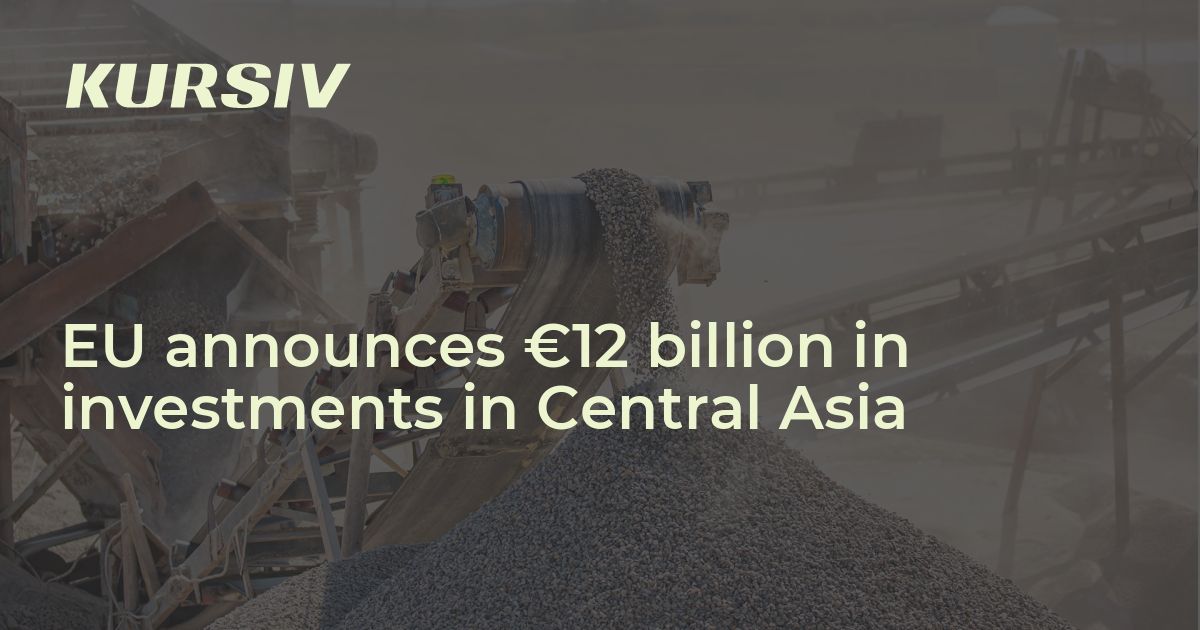EU's €12 Billion Investment Initiative in Central Asia: Fostering Sustainable Development
Key Ideas
- The European Union unveiled a €12 billion investment plan for Central Asian countries, focusing on transportation, critical minerals, hydropower, climate, and satellite internet.
- The initiative aims to foster sustainable development in the region through partnerships and projects, including those related to renewable energy and raw material value chains.
- The EU, along with the European Bank for Reconstruction and Development, will support critical minerals and renewable energy projects worth an additional €7 to €8 billion by 2027.
- Collaboration with Kazakhstan includes a roadmap focusing on critical materials, batteries, and green hydrogen to drive the development of local industries and promote a sustainable economy.
The European Union has announced a substantial €12 billion investment package for Central Asian countries as part of its Global Gateway program. The initiative, unveiled during the EU-Central Asia summit in Samarkand, Uzbekistan, aims to kickstart large-scale projects across Kazakhstan, Kyrgyzstan, Tajikistan, Turkmenistan, and Uzbekistan. President of the European Commission, Ursula von der Leyen, highlighted the significance of this investment, emphasizing the EU's commitment to fostering sustainable development in the region. The investment will target key areas such as transportation, critical minerals, hydropower, climate, and satellite internet, with a focus on building infrastructure and promoting renewable energy initiatives. Additionally, the European Bank for Reconstruction and Development is set to support critical minerals and renewable energy projects worth an estimated €7 to €8 billion by 2027. Collaboration with Kazakhstan will include a roadmap focusing on critical materials, batteries, and green hydrogen to drive local industry development. Von der Leyen stressed the importance of a partnership approach, aiming to support the growth of local industries and advance the region's economy in a sustainable manner. The EU's commitment to working with Central Asian states on various stages of the raw material value chain, from production to research and training, signifies a long-term vision for economic growth and cooperation between the regions.
